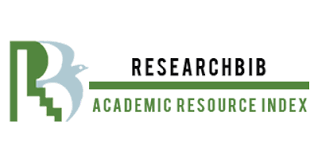COGNITIVE LINGUISTIC ANALYSIS OF ENGLISH PROVERBS: METAPHOR, METONYMY, AND BEYOND
Keywords:
cognitive linguistics, English proverbs, metaphor, metonymy, conceptual metaphor, conceptual metonymyAbstract
This article conducts a comprehensive cognitive linguistic analysis of English proverbs, focusing on the roles of metaphor and metonymy in these expressions. Drawing on a corpus of English proverbs, it examines the underlying conceptual metaphors and metonymies that structure these linguistic units. The article utilizes qualitative and quantitative methods to analyze the data, revealing the cognitive processes involved in the creation and interpretation of proverbs. The findings provide insights into the cognitive and cultural frameworks that underpin the use of proverbs in language.
References
Gibbs, R. W. (1994). The Poetics of Mind: Figurative Thought, Language, and Understanding. Cambridge University Press.
Kövecses, Z. (2005). Metaphor in Culture: Universality and Variation. Cambridge University Press.
Lakoff, G., & Johnson, M. (1980). Metaphors We Live By. University of Chicago Press.
Searle, J. R. (1979). Expression and Meaning: Studies in the Theory of Speech Acts. Cambridge University Press.
Steen, G. J., & Gibbs, R. W. (Eds.). (2015). Figurative Language in Use. Cambridge University Press.4
Usmonova, D. (2022). Аxeоlоgicаl Feаtures of Phrаseоlоgicаl Units (in the Cаse of Uzbek, Russiаn and English Lаnguаges). Miasto Przyszłości
Sotvoldievna, U. D. (2022). Linguistic and cultural classification of euphemisms in Uzbek and English languages. INTERNATIONAL JOURNAL OF SOCIAL SCIENCE & INTERDISCIPLINARY RESEARCH ISSN: 2277-3630
Usmonova, D., & Djalolov, Z. (2022). TRANSLATION STRATEGIES FOR CULTURE-SPECIFIC TERMS. Педагогика и психология в современном мире: теоретические и практические исследования, 1(24), 142-145.
Sotvoldiyevna, U. D. (2022). THE CLASSIFICATION OF POLYSEMY AND VARIATION IN ENGLISH VERBS. Journal of new century innovations, 15(2), 102-104.







